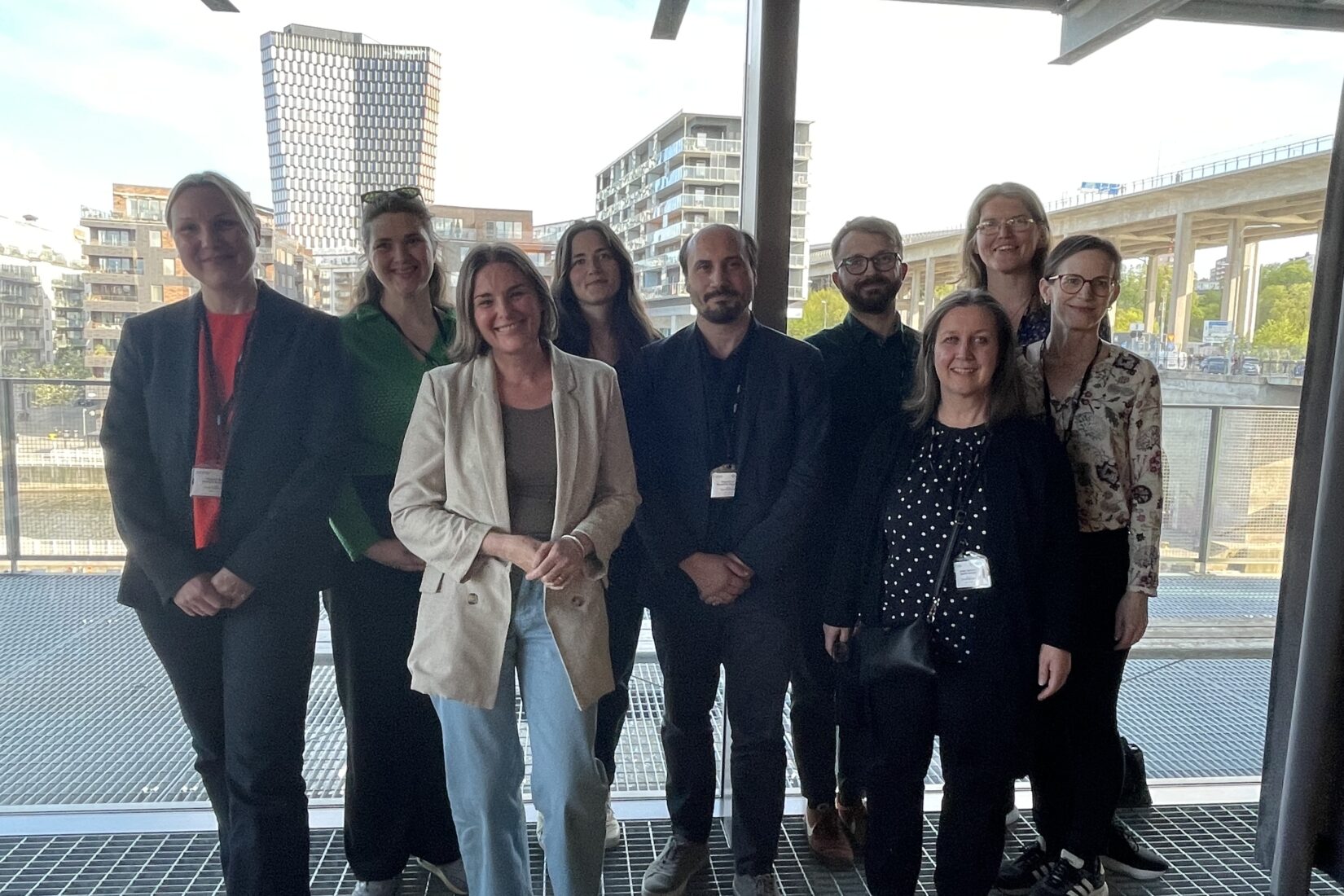Emma Shepherdson, Project Manager at White Arkitekter, is the initiator behind the meeting. She leads the SI-funded project SustainTimber and explains that through her contact with other project owners, she noticed that many of the initiatives overlap and complement each other.
“That’s how the idea for this gathering came about — when we started thinking about how to bring everyone together to talk, put faces to the different projects, and begin to understand how they are connected. With the Ukrainian delegation from the ministries visiting as part of another project organised by SIS (Swedish Institute for Standards), it felt like the perfect opportunity to showcase Swedish–Ukrainian projects focused on reconstruction, while also starting to build a platform for sharing experiences and enabling future collaboration.”
A patchwork of interconnected projects
One of the projects represented during the meeting was IMSVILL, presented by Karin Lobo Lundgren from Spacescape. She explains that the aim of the project is to bring together architects and planners from Ukraine, Lithuania, and Sweden to map similarities and differences in challenges and opportunities. The focus lies on large-scale residential area reconstruction. During the presentations, it becomes clear that many of the initiatives led by Swedish actors and their partners in Ukraine and other countries form a patchwork, with several projects overlapping and building upon earlier efforts—deepening and developing them further. Many participants share similar experiences, and the vast majority of the projects were shown to be funded by the Swedish Institute, either through the SI Ukraine Cooperation Programme or the SI Baltic Sea Neighbourhood Programme, or initially funded by SI and later transitioned into EU-funded initiatives.
Among those presenting their projects were also Tove Levonen from the Shared City Foundation and Eugenia Bevz from Architects Sweden, both involved in the SI-funded project BaltPart. The initiative builds on a previous pilot project led by Architects Sweden, where participant interviews revealed a strong need for capacity-building training focused on increasing citizen participation—particularly with respect to gender, age diversity, and vulnerable groups such as war veterans with disabilities and migrants.
The toolkit of methods used in the training modules aims to strengthen civil society and the democratic process in Ukraine, enabling a more inclusive bottom-up approach in a country with a traditionally top down hierarchical structure.
Both Eugenia and Tove found great value in participating in the event and hearing all the project presentations.
“You can clearly see there are synergies. It’s exciting to gather in the same room, because we’ve heard so much about the other projects. Having the chance to meet and hear firsthand what others are doing is incredibly valuable. It’s a privilege to look beyond your own project,” says Tove.
“BaltPart is a short-term project, and we’re constantly thinking about how to develop it further. We want the project to continue, and this is a crucial forum to help make that possible.”
Building on shared experience
Ragnar Lund from Stockholm Business School at Stockholm University, who presented the project Rethinking Cities in Ukraine, also emphasized the value of meeting representatives from other projects. He sees clear opportunities for collaboration with other organisations in the next phase of Rethinking Cities, which focuses on training municipal officials in Ukraine in sustainable urban development and good governance through targeted training modules and peer-to-peer learning in project management.
“The strength lies in being able to build on each other’s experiences and efforts, creating continuity and potentially deepening or further developing important initiatives already underway,” says Ragnar.
He continues:
“We also have several strong examples of initiatives that have evolved through new partnerships within the framework of other projects. One such example is Rethinking Cities in Ukraine, where efforts related to waste management have progressed to project implementation in collaboration with SALAR International and Avfall Sverige. It has proven very valuable to work with smaller municipalities at the local level on concrete projects, which in turn strengthens efforts related to participation and democracy. In this context, collaboration with other actors within the SI Ukraine Cooperation Programme and Team Sweden represents an important opportunity to both learn from one another and further develop our projects.”
In conclusion, Emma Shepherdson adds:
“There is a tremendous amount of willingness and interest in collaborating, staying open, and building networks for cooperation between projects. We all want what’s best for Ukraine, and that drives us to find more effective ways of working together on future initiatives.”
